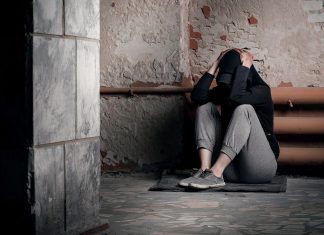There are 120 children and youth experiencing foster care in Grays Harbor County. The reasons children and youth come into care can include family hardships of incarceration, drug use, death, or abuse. Their time in care can range from a few days or weeks to months and even years. During these traumatic times, it makes a world of difference to provide a stable, welcoming home for a child or a group of siblings.

Chisana White is a foster parent Targeted Recruitment Specialist (TRS) with the Washington State Department of Children, Youth & Families (DCYF). She welcomes you to consider supporting a child in foster care in your neighborhood or community. That may sound bigger than you can imagine, but there is step-by-step training and support during your journey to becoming a foster parent for a child in need.
What does it take to be a foster parent?
If you are patient, flexible, and have a sense of humor, you already have some of the skills to be a great foster parent. It makes no difference if you are single, married, divorced, or already have your own children or not. DCYF needs individuals from diverse backgrounds, especially those who identify as BIPOC and LGBTQIA+. Given the unique ways children enter the child welfare system, it is important that prospective foster parents understand and be willing to learn more about what it takes to parent a child who has experienced trauma, separation, and loss. Foster parents need to be compassionate with children from all walks of life and manners of being, including the child’s culture. Keeping a child connected to their culture and community contributes to increased positive outcomes for children in foster care.
DCYF’s goal is to prevent the need to remove children from their homes. However, when it is necessary for children to come into care, the agency’s primary goal is family reunification. DCYF wants to reunify parents with their children as soon as it is safe to do so. If they cannot reunify, children are placed with relatives or kin whenever possible. When there is no kin available, DCYF looks for foster parents residing in the same community the child is removed from, making every effort to keep children in their community and school

Becoming a foster parent is a licensing process that can be completed through the state or a private agency. Licensing requirements include background checks, fingerprinting, orientation, caregiver core training, and a home study assessment. You can expect about four months to complete the entire licensing process, with support every step of the way.
“We continue to support caregivers with trainings all through the year,” says Nancy Gutierrez, DCYF’s Communication Consultant Manager. “To help support the family, there is a monthly financial reimbursement for licensed foster parents.”
“I have five grandbabies from kids that I had before I was 35,” laughs Nathan LaChine, who has been a foster parent for 16 years. He first became a foster parent at the young age of 21. His family of origin included foster children, and he knew that he would follow suit when he was old enough.
“It was always such a cool experience,” he remembers. Nathan’s first foster was a 13-year-old boy who attended the same high school Nathan had, not that many years previously. He remembers the initial, quizzical looks from his former teachers, but all was quickly understood.
“It’s challenging, navigating everything,” says Nathan. “It’s definitely the best thing I have ever done.”
A 17-year-old foster youth currently experiencing care shared, “Having a home is not just a place to put your head, it’s where you can be you, and people accept you.” The youth explained that a group home, for him, was not really a home. He is glad to now be with his foster family and on track to graduate from high school in a year.

You can talk with Targeted Recruitment Specialist Chisana White for more information about your future as a foster parent. “If you’re interested in supporting children and youth in the foster care system, there’s a spot for you,” she says. Not everyone is ready to become foster parents. If foster parenting isn’t right for you, there are other ways to get involved and support the children and youth in your community.
If you have a few hours to help, consider:
- Donating Goods to Foster Care Closet
- Supporting a local foster home
If you have a few weeks, you can:
- Volunteer with Office Moms and Dads
- Become a Respite Care Provider
- Support a family in their path to reunification
If you have years to help:
- Become a foster parent
- Become a Guardian ad Litem (GAL)
- Become a Court Appointed Special Advocate
- Big Brothers Big Sisters of Southwest Washington

All of these programs have an impact and are in need of amazing volunteers. If you know someone who is a foster parent or kinship caregiver, offer to bring over dinner or ask if you can help in another way. Your support would go a long way!
“Open your home,” encouraged a 17-year-old foster youth. He also wants people to go beyond reading the youth’s file. “First thing, get to know the kid,” he says. You can make a world of difference.
Be the way home, and make a difference for a child or youth in your community!
Learn more about ways to get engaged. Contact Chisana White at chisana.white@dcyf.wa.gov or 360.787.6182.
Visit DCYF’s Become a Foster Parent page.
Ready to become a foster parent? Start the process here.
There is also information on DCYF’s Facebook page.
Sponsored












































